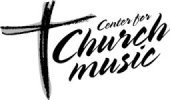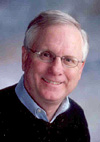Center For Church Music, Songs & Hymns

Recent articles
- Kids Choir Camp 2012: A Soldier of the Cross!
- Kids Choir Camp 2011
- Billy's Questions: Session 1
- How I Can Help
- The Song of the Cross
Great Hymns of the Faith CDs
Categories
- Church Musicians
- The Weight of Glory
- Be Prepared
- Singing Hymns
- Singing Lessons
- John Wesley on Singing
- Singing: A Call to Excellence
- Lay People
- Billy's Questions
- C.S. Lewis on Worship
- Kids Choir Camp
- A Song of Christmas
- Singing Hymns
- Knowing Christ
- Christmas Eve Truce
- Pastors
- Music
- Church Musician
- Worship
Our Author

Music & Worship
The Weight of Glory Part 7
< Previous Article
‘The Music of Glory’
Regardless of the ‘expert testimony’ of the early Church, the fact remains that “sola Scriptura” (only Scripture) is the foundation for all of our discussions regarding the use of music in the church and in our lives. “We need nothing else but Scripture” was the great cry of the Reformation – and to this day it is feared by cults – and cult leaders – as the supreme threat to their existence.
But, it is helpful to examine the practice of those early Christians, because of their proximity to the Apostles and the original documents of Scripture. Two aspects of early Church music were the polemic (admonition or criticism) against pagen music, and the absence of instruments in worship. This was particularly true after 200 AD.
Thus, the early Church was deathly afraid of the “world” and in particular, its pagan music. Because the initial influence of the Church was small, and the Roman and Greek cultures so pervasive, they worked to exclude all pagan references in their music and worship.
For example, you cannot fully understand the significance of Ephesians 5:18-19 without relating it to 1 Corinthians 10:20, 21. Pagan, drunken orgies were commonly associated with the religious ceremonies of St. Paul’s day. The orgies were supposed to induce some ecstatic communion with their gods. In 1 Corinthians 10:21, St. Paul refers to such worship practices as the “cup of demons”.
Christians were to avoid such associations at all costs. Their worship, and the music of their worship was to be under the influence of the Holy Spirit. Our familiar Colossians 3:16 passage says: Let the word of Christ dwell in you richly in all wisdom, teaching and admonishing one another in psalms and hymns and spiritual songs…”To the early Church, music that honored God was continually under the influence of the Spirit. The Church would no permit an aspect of worship that in any way could be associated with the pagan world.
